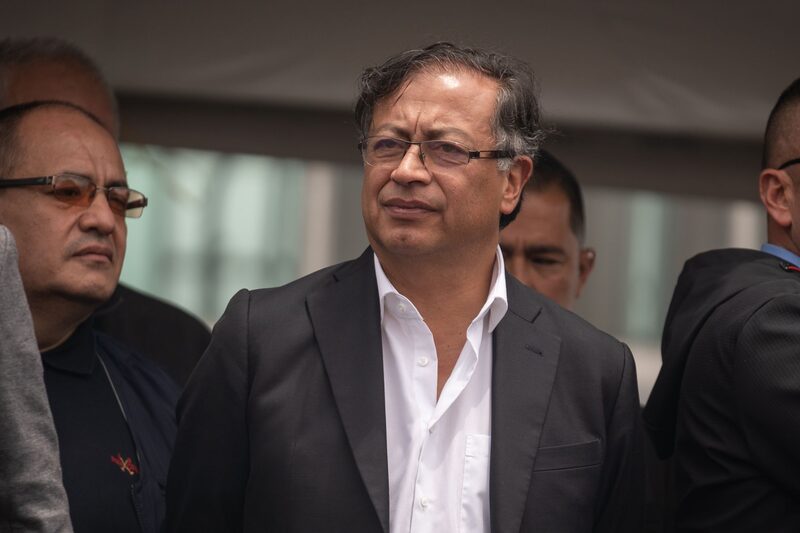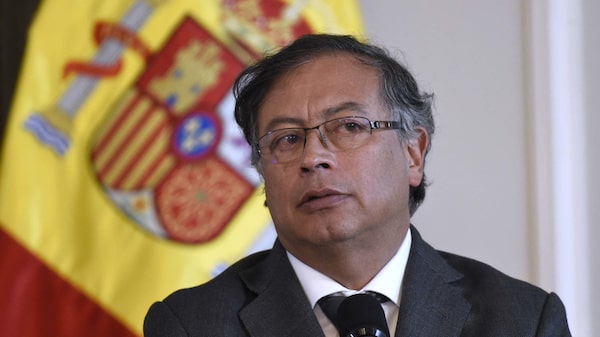Bogotá — Colombia’s President Gustavo Petro said last week that “the country must promptly discuss whether to enter into an economic emergency, to face and mitigate the risks due to the climate crisis and the increase in rainfall during the next three months”.
The last time Colombia declared an economic and social emergency due to the winter was in 2010 during the presidency of Juan Manuel Santos.
What is an economic emergency and what powers would it give Petro?
According to article 215 of the country’s Constitution, the president, with the signature of all his ministers, can declare a state of emergency, which can be economic and social, one of public order or internal unrest, or concern war, up to three times in the same year, however, the sum of such emergencies cannot exceed 90 days, according to economic lawyer Rodrigo Galarza.
Among the powers that such a declaration of economic emergency would give the president are the right to issue decrees without the need to consult Congress, but which “must refer to matters that have a direct and specific relation with the state of emergency, and may, on a transitory basis, establish new taxes or modify existing ones”.
In the event that new taxes are created during the emergency or existing taxes are modified, “the measures shall cease to be in force at the end of the following fiscal year, unless Congress, during the following year, grants them a permanent character”, according to the Constitution.
An example of the above is the creation of the famous 1×1000 tax, which evolved into the tax now known 4×1000, and which came about as a result of a decree in 1998, issued during the economic emergency declared by the then government to face the domestic financial crisis.
The most recent cases of economic emergency in Colombia were those declared in a bid to combat the Covid-19 pandemic in 2020, and with which the government of former president Iván Duque issued decrees to create the social program called ‘Ingreso Solidario’ to attend to vulnerable families that were not receiving support through other state-run programs.
Manuel Quinche, a professor of constitutional law at Rosario University, told Bloomberg Línea that the declaration of emergency “is made by means of a legislative decree, and this decree assumes three things: Firstly, that there is a disturbance or threat to rights caused by economic, social, ecological issues or a disaster; secondly that such events must be serious and imminent, and thirdly that such events cannot be overcome or addressed through the usual legislative or administrative measures”.
Despite the extraordinary powers that the president would be granted with the declaration, in Colombia “there is a law that regulates states of exception, regulates the scope of the declaration and the extremes of the measures that can be taken”, Galarza said.
The lawyer added that “as regards the declaration, it must be due to extraordinary circumstances.”
Risks and benefits
Given the powers granted to the president to issue decrees, a declaration of economic emergency would have both benefits and risks, according to the sources consulted by Bloomberg Línea.
“Regarding the benefits, the government has the capacity to act urgently and promptly to mobilize resources, such as imposing new taxes, and apply them to overcome the state of emergency. And regarding the risks, they when the president is prone to authoritarianism,” Galarza said.
“The risks are those of any type of legislation, there may be abuses, but depending on the type of president, administration and objectives that may arise, any norm may imply abuses, those that are of an emergency nature and those that are not”, according to Quinche at Rosario University.
He added that, among the benefits of such a declaration is that the country can quickly address a crisis of great magnitude.
On the other hand, for Galarza, the reasons behind Petro’s plan for a declaration of emergency are doubtful, and which would mean it risks being overturned by the Constitutional Court.
“The president has alluded that the probable cause of the eventual declaration is the worsening of the winter as it accentuates hunger, but this cause is doubtful. Moreover, in his presidential campaign, Petro announced that his first act would be to declare an economic emergency ‘because people were going hungry, and hunger was an emergency’.”
He also argued that, while Colombia is faced with a harsh winter, it will be no worse than in previous years, and will not be as severe as the ones during Santos’ presidency.
“And with respect to hunger, I doubt that this is a legitimate cause when employment and the economy have shown great resilience,” Galarza added.





